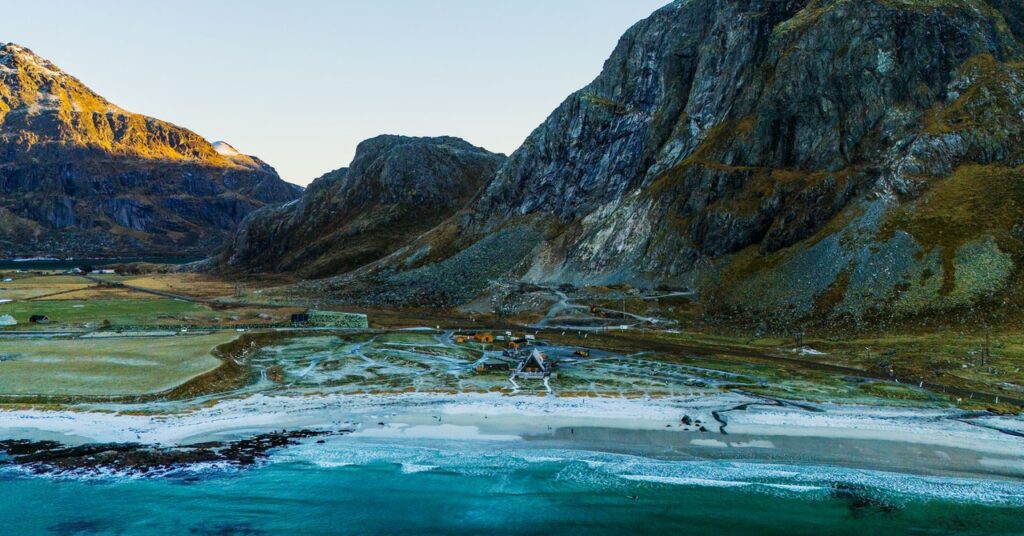In a memo revealed in November 2023, Norwegian regulation agency Wilkborg Rein mentioned that passing the invoice with an insufficient environmental evaluation might violate not solely the nation’s personal legal guidelines on environmental safety, but additionally European and worldwide legal guidelines. Native communities or NGOs might due to this fact sue, says Elise Johansen, a accomplice on the agency who led the memo.
But with parliament having made its determination, the time for a complete examine of environmental impacts has seemingly now handed, says Johansen. With the laws now in place, solely assessments on particular tasks will probably be required, so large-scale, regional environmental results will seemingly go uninvestigated.
Sending Ripples Throughout the Ocean
Scientists consider the impacts of mining might attain far past the place it takes place. Disturbing the seafloor might result in plumes of sediment rising by means of the water column, which might disturb sea life for a whole bunch of kilometers, impacting Norway’s neighbors—equivalent to Iceland, Greenland, and the Faroe Islands—in addition to the Arctic extra broadly.
The kind of mining Norway is trying to do will probably be extra invasive than what’s underway within the Pacific, which entails hoovering up metal-rich nodules that sit on the seafloor.
Norway is as an alternative trying to exploit the cobalt-rich crusts and polymetallic sulfides on its seabed. Extracting the previous would seemingly look just like land-based mining—just some thousand meters beneath the ocean floor.
Polymetallic sulfides may show tricker to use. These are present in so-called black people who smoke: deep-sea vents that spurge water filled with minerals from beneath the Earth’s crust. Over time, these chimneys create wealthy deposits of minerals in addition to wealthy, unstudied ecosystems.
The Norwegian determination doesn’t permit for mining on energetic people who smoke, however scientists say it’s onerous to attract a distinction on which of them are energetic, says Haldis Tjeldflaat Helle, who campaigns in opposition to deep-sea mining at Greenpeace’s Norway workplace.
On high of impacts to marine life, Norway’s determination might have geopolitical implications. “The launch of Arctic mining would enhance worldwide competitors for assets” and alter the dynamics of the area, says French MP Eléonore Caroit.
There’ll seemingly be unfavourable geostrategic fallout from the transfer, says Elizabeth Buchanan of the Fashionable Struggle Institute on the US’s West Level Navy Academy. The choice means “states like Russia and China have each precedent and intent to level to in establishing their very own deep-sea mining practices,” she says.
Plus, about one-third of the realm Norway has opened up overlaps with the continental shelf and fishery safety zone across the Svalbard archipelago. These Arctic islands, which sit to the north of Norway, are ruled by a Nineteen Twenties settlement that requires non-discrimination among the many 46 events that signed it, who embody France, Italy, Japan, and the US. “All residents and corporations of signatories have equal rights” to fishing and any kind of maritime exercise, says Soltvedt Hvinden.
There’s already disagreement between the signatories as to interpret the scope and software of the treaty. Norway claims it solely extends to the Svalbard territorial waters, 12 nautical miles off the islands’ coasts, whereas others, such because the Netherlands, preserve the treaty ought to cowl the archipelago’s unique financial zone, which is 200 nautical miles off its coast—this is able to be consistent with the UN Conference of the Regulation of the Seas, says Johansen. Signatories “might take into account a gap that provides Norwegian corporations particular rights by way of exploration and exploitation to be in breach of the treaty,” says Soltvedt Hvinden. Iceland and Russia have already signaled such a view.
